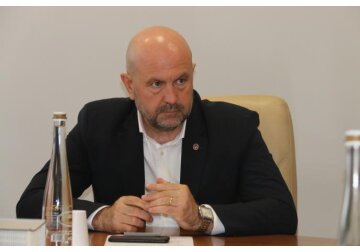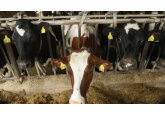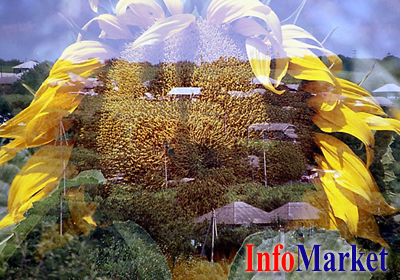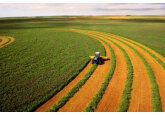
Vladimir Bolea: Over the last 4 years, the agrarian sector has received state subsidies worth 6.5 billion lei, but it is still "in a coma" - it is necessary to change the approach.
The statement was made by Deputy Prime Minister, Agriculture and Food Minister, at the opening of an extended meeting with the biggest employers and taxpayers from the agri-industrial sector, where the situation in the sector and the fiscal policy measures, as well as the problems of the agrarians and the prospects of the agricultural development were discussed. Vladimir Bolea noted that agriculture was, is and will be the most important sector of the country's economy, the only one with a high potential for industrialization. However, it faces a number of problems: labor shortage, low income and productivity, debts, etc. "There is a big labor shortage in agriculture due to the general aging of the population and specialists. The average age of agribusinessmen is 53-55 years old, and this is a big social problem. Another problem is low incomes due to low productivity. Another difficulty is that in order to create agrarian business, huge investments are needed, and there is no consolidation of agrarians. In the south of Moldova, farmers are even more vulnerable because of the drought. Moldova has become a raw material producing country and the processing sector is very weak. We sell 1.5 million tons of wheat and consume only 350 thousand tons, which is a failed economic model. All sunflower processing is carried out by only one monopolist company, which dictates its pricing policy when purchasing raw materials. Besides, we do not stand competition from the beginning. For example, Moldova produced 1.5 million tons of wheat this year, Ukraine - 25 million tons, Romania - 10-11 million tons, with productivity of 4.4 tons/ha, 5.1 tons/ha and 4.7 tons/ha, respectively, and in the south of Moldova the yield is even lower. At the same time, we do not have any agricultural cooperatives, and agrarians do not want to unite to share benefits. We have to decide how we will manage the agriculture in the future," Vladimir Bolea said. He cited the example of the wine industry, which revived after the Russian embargo and subsequent crisis - through bankruptcies, investments, and support from partners, primarily USAID. "The new agricultural development program should be revolutionary. It will be based on joint policies and EU experience. We have a model of how things work in the EU, but we need to make efforts and change the approach," the Minister said. It is worth mentioning that Moldovan President Maia Sandu attended the meeting with the agrarians. She set an ambitious goal to create a European agriculture in Moldova by 2030. The President urged the agrarians to unite and adapt new methods of work in the sector, as the Dutch farmers have successfully done - this country, which has 2.4 million hectares of agricultural land (Moldova has 2.8 million hectares), is the world's second largest exporter of agricultural products after the USA. The Moldovan leader also noted the great potential of the European market. "Today, about 58% of Moldova's agrarian exports go to the EU market, and in order for some of the EU advantages to become a reality for Moldova, it is necessary to contribute to the consolidation of efforts to support Moldova's European integration. We need to talk to people, to employees, not only about the benefits for agriculture, but also for citizens and the economy in general," the President said, noting that the authorities will continue supporting the agricultural sector and enterprises that pay taxes, invest, develop and increase efficiency. // 14.09.2023 - InfoMarket.







